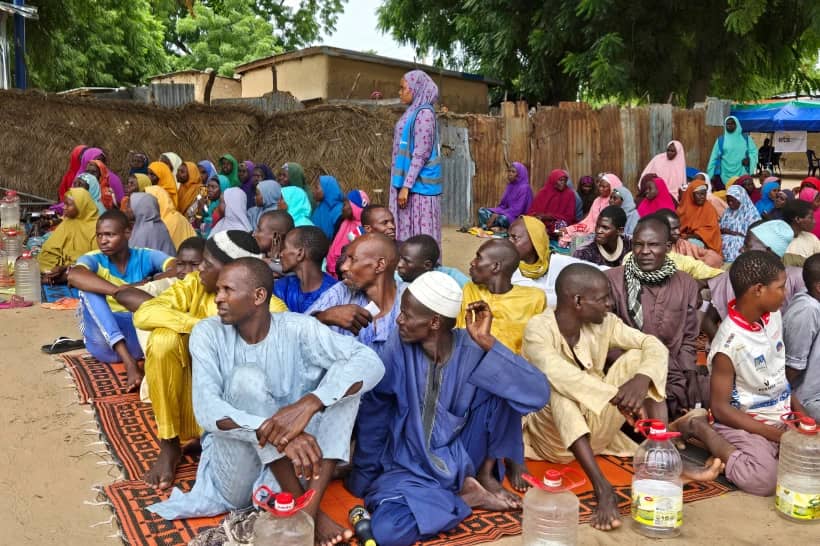This past Tuesday, after a taxing weekend visit to the Caucasus nations of Georgia and Azerbaijan, Pope Francis left the Vatican City State and made an unexpected visit to the city of Amatrice.
Although the pontiff was most certainly tired from his overseas travels, he nevertheless made the trip to the central Italian city.
A little over a month ago, the city was laid waste by a 6.2 magnitude earthquake that left hundreds dead and thousands wounded and homeless. The city was leveled and appears to be the ruins of some kind of post-apocalyptic war zone. Its citizens are still living in the midst of shambles while attempting to re-build and plan as best they can for an uncertain future.
In such a difficult situation for the small town, a Western pragmatist might wonder why Pope Francis made a visit there. He’s not skilled in architecture or the building arts. The pontiff is untrained in emergency protocols and is most likely too old to lift debris.
What real good could the pope’s visit have accomplished? Couldn’t the city have benefited from a different visitor with a better set of skills?
For the pragmatist, these questions seem reasonable. If human life could easily fit in the tight boxes of materialism and utilitarianism then they would be understandable and even pressing questions. Such sentiments would be legitimate with the assertion: “Get out of the way, pope, people are trying to do real work here.”
But is human life so constricted? Are the nuts and bolts of life good enough to summarize what it means to be a human person and to be alive?
Pope Francis emphasized that he wanted to visit the region “as a priest, a bishop and pope, but by myself, in private.” He wanted it to be a personal encounter, not a photo opportunity or a regular apostolic visit.
The pope’s visit would be one person walking with other people who have suffered great loss. It would be one heart listening to others, praying with them and sharing their suffering.
Showing his awareness and care for the city’s practical well-being, the pope explained: “My visit, perhaps, is more of an obstruction than a help… I wanted to greet you, but I didn’t want to be an inconvenience, that’s why I let some time pass.”
While in Amatrice, the pope visited the makeshift school, spoke casually with emergency and fire personnel, and meandered through parts of the city sitting with people, exchanging hugs and kisses, and just being with people who need love and support. The pope told the people of Amatrice: “Since the beginning I felt that I had to come to you, simply to tell you that I am close to you, nothing else, and that I pray for you.”
During his time in the small town, the pope did pray, and he invited the people to pray with him, saying: “So many loved ones left us, they died here, under the rubble. Let’s pray to the Virgin Mary for them, let’s do it all together.”
Through his time, accompaniment, compassion and prayer, the pope was able to give spiritual gifts to the hearts of the people of Amatrice. There are gifts that architects, construction experts, and emergency and fire personnel could not give – not in the pope’s way.
The earthquake of Amatrice didn’t just rock and knock down buildings, it shook and unsettled human hearts, and so the rebuilding of the small town had to involve more than just the reconstruction of buildings.
Admittedly in the ruins, the pope couldn’t raise up buildings, but he raised up something far more importantly, namely, the human spirit, and in his visit he gave profound inspiration to a people struggling for hope and encouragement.
In Amatrice, the pope did not attempt to control things or explain them away. He did not give grand theological answers, nor did he give pious platitudes or condescending, misplaced spiritual maxims. The pope just visited and was present to the people. He accompanied them, and in so doing he reminded the human family, and especially the West, of an important lesson on life.
This lesson could be briefly summarized in this way: “Do not be afraid of suffering, do not think you have to fix the world, just be with others who need you, love, listen, and pray.”
This is what Pope Francis gave the people of Amatrice. It’s what they needed, and why he felt compelled to visit. It’s a liberating lesson that the West should re-learn.
On Oct. 14, Crux will co-sponsor a fundraising dinner to support relief efforts for the victims of the Italian earthquake at Christ Cathedral in Orange County, California, in tandem with the Diocese of Orange and Catholic Relief Services. Information on the event, which will be live-streamed on Crux, can be found here.
















